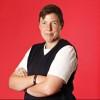Recently I was interviewed for an article in VICE about what vanilla sex means and whether people are having it. You can read the full article here, and here's what I had to say...
Have activities that fall under "vanilla sex" changed over time? Is something that was once considered kinky now considered vanilla?
Absolutely there has been some changes with a couple of cultural shifts that have happened in the last few decades, often called 'sexualisation' and 'subjectification'. Sexualisation means that sex has become a big story in wider culture and there's a lot more sexual media out there, easily accessible, and including more diversity of sexual practices. Subjectification means that people are now expected to be sexual subjects or entrepreneurs: learning tools and techniques to make them good at sex, and maintaining 'great sex' in relationships.
The combination of these two means that the kind of sex people are expected to aspire to has a broader range, and includes some things that would previously have been thought of as kinky. For example most sex advice books include light bondage, role-play, and sensation play these days. However there is still a strong sense that these things are an add-on to sex rather than sex itself (which is still generally seen as penis-in-vagina intercourse). Also there's a strong sense of a boundary between 'kinky-fuckery' (as Ana calls it in Fifty Shades of Grey) and proper BDSM (Bondage and Discipline, Dominance and Submission, and Sadomasochism). Proper BDSM is still seen as deviant and people are warned against it as if it was somehow inherently abnormal, dangerous or only for broken people (it's not!)
But from these shifts you could argue that 'vanilla sex' now certainly includes oral sex, anal sex (man penetrating woman), and some light kink, in addition to penis-in-vagina sex.
More on this in my book with Ros Gill and Laura Harvey, Mediated Intimacy.
Do queer and nonbinary communities use the phrase "vanilla"? Or is that kind of construct less prevalent, and if so why?
I've heard it mostly used in kink communities to describe non-kinky sex, and even then there is often an awareness that none of us should really be judging people negatively for their sexual desires - whether those desires are kinky or non-kinky - and there can be concern that 'vanilla' sounds like a derogatory term (bland or boring). Queer people can use terms like vanilla, normal, mundane or muggle to describe non-queer people. It can be a way of reframing things so that the people who are often stigmatised, marginalised and pathologised are presented as in some way better than those who often do the stigmatising, marginalising, or pathologising. But again it is usually tongue-in-cheek with an awareness that reversing a hierarchy where one sexuality is seen as superior to another is still problematic.
It's also worth remembering how few people actually tick all the boxes of being a completely vanilla, heteronormative, person. If you count up the numbers of people who are openly or secretly non-monogamous, with the number who have kinky desires, and the number who have attraction to more than one gender, or very low or high sexual attraction, actually that leaves very few people in what we've been taught to believe is 'normal'.
More on this in my book The Psychology of Sex.
How do you think tech/apps have changed the way we view what falls under "vanilla sex" and how we view sex in general?
They've been part of this sexualisation and subjectification that I mentioned earlier - they make us more aware of the diversity of things that people can find hot, and the sense that it's good to be open about such desires and to be able to offer to meet them. There is a risk that we go the other way in that people feel pressure to be up for anything and to offer things on hook-up apps and the like that they're not really into. There's nowhere near enough cultural consideration of how we do this consensually.
This is something we talk about a lot on my podcast with Justin Hancock megjohnandjustin.com.

